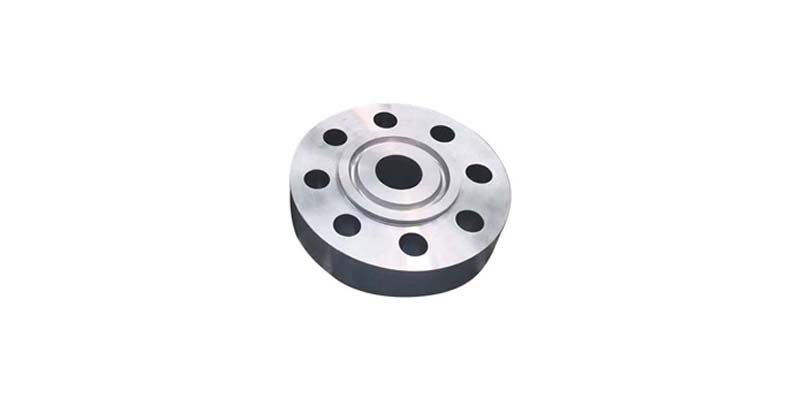- Contact Innally, Let you purchase forgings in China more favorable prices, products more assured!
- Hotline:+(86)15038323776 Email:innally@innally.com
Aerospace forgings manufacturing: How to guarantee high precision and quality?
- Category: Mechanical forgings for metalworking, Stainless steel forging
- |
- Date: 19/09/2023
Strengthen exchanges and cooperation with domestic and foreign counterparts, learn from advanced quality control and quality assurance experience, and constantly optimize their own production and management processes.
Product Details
With the rapid development of aerospace technology, the forging industry is also making continuous progress. The market competition is becoming increasingly fierce, and customers are increasingly demanding the quality and performance of forgings. Therefore, improving the precision and quality of forging manufacturing has become the key to enterprises in an invincible position in the fierce competition.
Problem analysis
In the manufacturing process of aerospace forgings, there are the following major problems:
Lack of accuracy: Due to the influence of forging process, heat treatment, measurement and other factors, the forging often has dimensional deviation, form and position error and other problems, affecting the subsequent assembly and performance.

Unstable quality: Due to the fluctuation of raw material quality and process parameters, the quality of forging is unstable, which brings potential risks to the safety performance of aerospace spacecraft.
Reason analysis
The main reasons for the above problems include: imperfect forging process: improper selection of existing forging process parameters, unreasonable mold design, etc., resulting in a large deviation of forging parts.
Poor quality of raw materials: uneven composition of raw materials, excessive impurities and other problems, affecting the performance and quality of forgings.
The measurement accuracy is not high: limited by the accuracy of the equipment and the measurement method, the measurement data of the forging often has errors, which affects the accurate evaluation of the quality.
solution
In view of the above problems, the following solutions are proposed:
Improve the forging process: in-depth study of the forging process principle, the selection of appropriate forging methods and parameters, to improve the accuracy and quality of forging parts.
Select the right high-precision measuring equipment: The use of advanced measuring instruments and equipment to improve the measurement accuracy and ensure the accurate assessment of forging quality.
Strictly control the quality of raw materials: the selection of high-quality raw materials to ensure the stability of the composition and the content of impurities in line with the standard, fundamentally ensure the quality of forgings.
Strengthen production management: Through the establishment of a sound quality management system, to achieve effective monitoring of the production process, to ensure the stability of process parameters and product consistency.
Implementation measure
To ensure the effective implementation of the above solutions, the following specific measures need to be taken:
Process parameter optimization: carry out process test, collect and analyze data, and constantly optimize forging process parameters to improve forging accuracy and quality.
Equipment selection and update: According to production needs, select or update high-precision forging equipment and measuring equipment to improve production efficiency and product quality.
Material procurement control: Establish a strict raw material procurement system to ensure that the quality of raw materials meets the requirements and control the quality of forgings from the source.
Production process monitoring: Develop quality control plan in the production process, regularly check the implementation of the process, to ensure the stability of the entire production process and the consistency of product quality.
Personnel training and quality improvement: Strengthen the skills training of employees, improve the quality and operation level of production personnel, and ensure that the impact of human factors on product quality in the production process is minimized. Effect evaluation and improvement
In order to ensure the effectiveness of quality control and quality assurance measures, the following effects should be evaluated and improved:
At the end of each production stage, the forgings are sampled to compare the test data with the expected target and evaluate the quality control effect of this stage.
Collect and analyze customer feedback regularly, analyze the root cause of quality problems, formulate targeted improvement measures, and continuously improve product quality.
Organize internal audit and external audit regularly, discover and improve potential quality hidden dangers and management loopholes, and improve the quality management system.
Encourage technological innovation and management innovation, adopt new processes, technologies and equipment, and constantly improve the precision and quality level of forging manufacturing.
Strengthen exchanges and cooperation with domestic and foreign counterparts, learn from advanced quality control and quality assurance experience, and constantly optimize their own production and management processes.
nannan
INNALLY website editing, to provide you with forging related information
Related Products
Search
Forging center
- Steel forgings
- Aluminium alloy forging
- Titanium alloy forging
- Stainless steel forging
- Copper forging
- Automotive forgings
- Locomotive forging
- Bicycle forgings
- Motorcycle forging
- Rigging and fasteners
- Bearing forging
- Electric power fittings
- Marine forging
- Mechanical forgings for metalworking
- Mining machinery forgings
- Marine engineering forgings
- Construction machinery forgings
Popular product

© 2025. All Rights Reserved.






